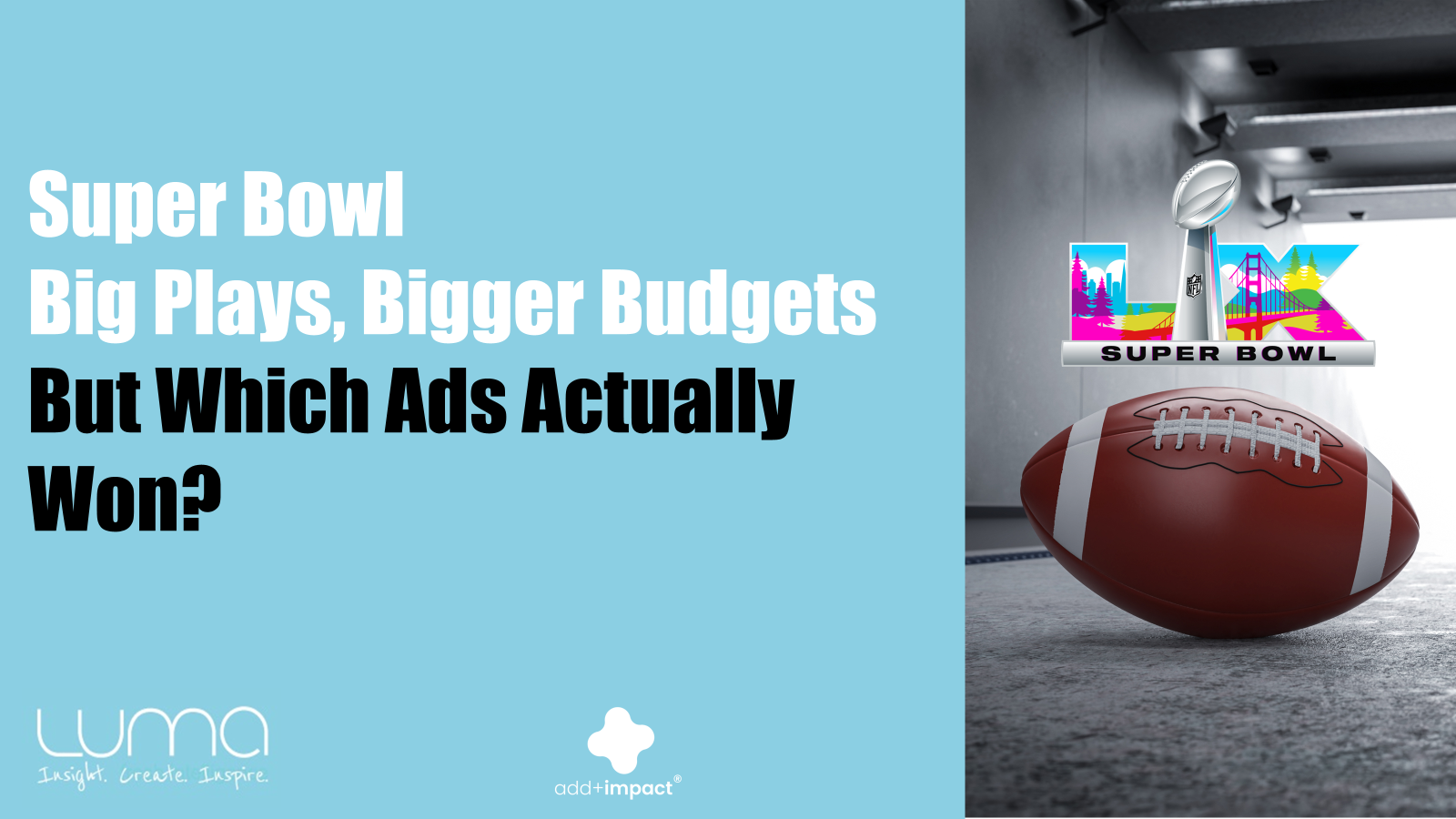SuperBowl LX saw the Seattle Seahawks defeat the New England Patriots. But, for those of us working in marketing, the real competition unfolded in the adbreaks.

Luma’s CEO Sally Joubert and COO Georgia Phillips’ recent paper about building strategies for brands in tough times shows the power of going beyond insights. We combined our research on advertising around events like Christmas, Super Bowl and the FIFA Women’s World Cup across the UK, USA and Australia with what we have learnt from 30 years of our own consumer research about brands and ads. We have tracked advertising effectiveness over time using our add+impact® ad effectiveness metric. We wanted to understand the consumer impact of these tough times and what it means for brands.
Our investigations into general perceptions behaviour confirmed that not only are people feeling less positive about the future, they are also making fundamental changes to their spending. Under these conditions, brands more than ever need to show how their product and services are critical and relevant to people’s needs in order to succeed. If they go dark or don’t remain relevant they will be substituted for generic brands or dropped all together.

One of the most important findings is that consumers’ expectations of brands are high and growing. Over 90% believe that brands should show they understand how consumers are feeling and show their support. This is not surprising given that empathy is a key driver in consideration. When people can relate to the ideas in our ads, to our messages, or feel an affinity or alignment to our brand, the bond becomes stronger. So, if brands can show they understand how people are feeling, they will be better able to build this trust and connection into the emotional resonance that brands are all striving to achieve.

Another important finding from looking back at advertising effectiveness over 30 years was the significant drop in the effectiveness of ads post the Global Financial Crisis. In fact, it was in decline post GFC until 2012 when it began to improve. We hypothesised that this would happen again with COVID, and it did. The decline in effectiveness happened more quickly, with the major drop happening in the first year of the crisis.
Why do we see this drop? It seems from looking at the data that many of the ads didn’t take into consideration the broader market landscape and context of how consumers would be feeling. As a result, advertising believability and credibility dropped. Many brands forged ahead spending on ads that weren’t relevant, and consumers didn’t believe what brands were saying. Perhaps this was because consumers struggled to grapple with the changing economic times and were cynical about the messages communicated. Or perhaps the messages were just not right for the time.
When we look at the brands that thrived, they did so because they adapted quickly and developed marketing strategies and campaigns with clear, relevant and believable messages. Our research on this year’s campaigns shows that the brands that have already pivoted are reaping the rewards. To succeed, they are ensuring they are believable, credible, likable, and not the same old thing.
Our research has three clear takeaways on how help brands navigate the current economic situation:
- Continue to Advertise - One of the most important learnings is that brands need to continue to advertise. If managed properly, crises can present brands with opportunities to gain the trust and respect of consumers, shareholders and employees.
- Lean into the times - Being sensitive to the changing economic conditions means that focusing on perceived value is important to remain relevant and believable.
- Show you Care - Another way to ensure you maximise the impact of your advertising is to connect with your audience to demonstrate your understanding and empathy. This means being genuine and authentic and showing you understand how people are feeling during uncertain times.
This paper highlights how important it is to go beyond insights. If we restrict our thinking to current views or our current project, we potentially miss the important and possibly brand changing insights and thinking we need. Whenever we are advising brands, we need to consider the full picture. What do we already know? What can we learn from the past to help here? We challenge you to ask these questions before you embark on any new project.
From the blog


